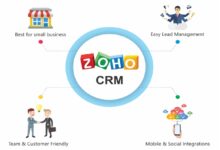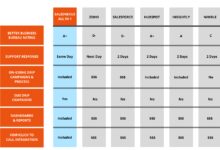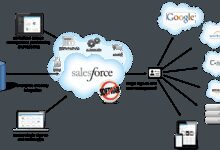Top Rated CRM Systems: 7 Ultimate Power Tools for 2024
In today’s fast-paced business world, the right CRM can be a game-changer. Discover the top rated crm systems that empower teams, boost sales, and transform customer relationships in 2024.
Why Top Rated CRM Systems Are Essential for Modern Businesses

In an era where customer experience dictates market success, leveraging a powerful CRM system is no longer optional—it’s essential. The top rated crm systems offer more than just contact management; they provide strategic insights, automation, and seamless integration across departments. Whether you’re a startup or a multinational corporation, a well-chosen CRM can streamline operations, improve customer retention, and drive revenue growth.
Defining CRM and Its Business Impact
CRM, or Customer Relationship Management, refers to technologies and strategies used to manage interactions with current and potential customers. At its core, a CRM system centralizes customer data, tracks communication, and automates workflows to enhance service delivery and sales efficiency.
- CRM systems consolidate customer data from multiple channels (email, phone, social media, web).
- They enable personalized marketing and targeted outreach based on customer behavior.
- Businesses using CRM report up to a 36% increase in customer satisfaction (source: Nucleus Research).
How CRM Drives Sales and Marketing Alignment
One of the most transformative benefits of top rated crm systems is their ability to bridge the gap between sales and marketing teams. By providing a unified platform for lead tracking, campaign analytics, and customer journey mapping, CRMs ensure both departments work from the same playbook.
- Marketing can track which campaigns generate qualified leads.
- Sales teams gain visibility into lead sources and engagement history.
- Automated lead scoring ensures high-potential prospects are prioritized.
“A CRM isn’t just a database—it’s the nervous system of your customer-facing operations.” — Forbes
Key Features That Define Top Rated CRM Systems
Not all CRMs are created equal. The top rated crm systems stand out due to a combination of robust features, user-friendly interfaces, and scalability. These platforms go beyond basic contact management to deliver advanced analytics, AI-driven insights, and deep integrations.
Contact and Lead Management
At the heart of every CRM is its ability to organize and manage customer information. The best systems allow businesses to track every interaction, from initial inquiry to post-sale support.
- Centralized customer profiles with interaction history.
- Customizable fields for industry-specific data (e.g., B2B vs. B2C).
- Duplicate detection and data cleansing tools to maintain accuracy.
Automation and Workflow Efficiency
Automation is a hallmark of top rated crm systems. From sending follow-up emails to assigning tasks, automation reduces manual work and ensures consistency.
- Automated email sequences triggered by customer actions.
- Task and reminder systems for sales reps.
- Approval workflows for quotes, contracts, and discounts.
Analytics, Reporting, and Forecasting
Data-driven decision-making is only possible with real-time reporting and predictive analytics. Leading CRMs offer dashboards that visualize sales pipelines, customer churn rates, and campaign performance.
- Drag-and-drop report builders for non-technical users.
- Forecasting tools that predict revenue based on pipeline health.
- Integration with BI tools like Power BI or Tableau for deeper analysis.
Top 7 CRM Systems Ranked for 2024
After extensive research, testing, and user feedback analysis, we’ve compiled a list of the top rated crm systems that lead the market in functionality, reliability, and innovation. These platforms cater to a wide range of industries and business sizes, ensuring there’s a perfect fit for every organization.
1. Salesforce Sales Cloud
Salesforce remains the undisputed leader in the CRM space. Its Sales Cloud offers unparalleled customization, scalability, and a vast ecosystem of third-party apps via the AppExchange.
- AI-powered Einstein Analytics for predictive lead scoring.
- Omni-channel support including phone, email, and social media.
- Strong integration with marketing automation tools like Pardot.
Learn more at Salesforce Official Site.
2. HubSpot CRM
HubSpot CRM is a favorite among small to mid-sized businesses for its intuitive interface and free tier that includes core CRM functionalities. It’s part of a broader inbound marketing suite, making it ideal for growth-focused companies.
- Free plan with unlimited users and contacts.
- Seamless integration with email, calendar, and social media.
- Visual sales pipeline and deal tracking.
Explore HubSpot at HubSpot CRM.
3. Zoho CRM
Zoho CRM strikes a balance between affordability and advanced features. It’s particularly strong in AI capabilities with Zia, its virtual assistant that automates routine tasks and provides sales predictions.
- Zia AI offers voice commands, sentiment analysis, and anomaly detection.
- Highly customizable modules for sales, marketing, and support.
- Excellent integration with other Zoho apps and third-party tools.
Visit Zoho CRM for more details.
4. Microsoft Dynamics 365
For enterprises already embedded in the Microsoft ecosystem, Dynamics 365 offers seamless integration with Outlook, Teams, and Office 365. It’s a powerful solution for complex sales cycles and service-heavy industries.
- Deep integration with Microsoft Power Platform for custom app development.
- Advanced AI for customer service and field service management.
- Comprehensive ERP and CRM convergence for end-to-end business management.
Discover more at Microsoft Dynamics 365.
5. Pipedrive
Pipedrive is designed with sales teams in mind. Its visual pipeline interface makes it easy to track deals and manage follow-ups, making it a top choice for sales-driven organizations.
- Drag-and-drop pipeline management.
- Activity reminders and automated workflows.
- Strong mobile app for on-the-go sales reps.
Check out Pipedrive for a demo.
6. Freshsales (by Freshworks)
Freshsales combines ease of use with powerful AI-driven insights. It’s particularly effective for startups and SMBs looking for a modern, cloud-based CRM with built-in phone and email capabilities.
- Integrated phone and email within the CRM interface.
- AI-based lead scoring and deal insights.
- Visual workflow builder for automation.
Learn more at Freshsales.
7. Monday.com CRM
While not a traditional CRM, Monday.com’s flexible work OS allows teams to build custom CRM workflows. Its visual boards and automation make it ideal for creative and project-based businesses.
- Highly customizable boards for sales, marketing, and client management.
- Time tracking, file sharing, and collaboration tools built-in.
- Integrates with Zoom, Slack, and Google Workspace.
Explore at Monday.com.
How to Choose the Right Top Rated CRM System for Your Business
Selecting the right CRM isn’t just about features—it’s about fit. The top rated crm systems may offer similar capabilities, but their effectiveness depends on your business size, industry, and long-term goals.
Assess Your Business Needs and Goals
Before diving into demos and trials, define what you want to achieve with a CRM. Are you looking to improve lead conversion? Enhance customer support? Automate marketing campaigns?
- Identify key pain points in your current customer management process.
- Set measurable goals (e.g., reduce response time by 30%).
- Involve stakeholders from sales, marketing, and customer service in the decision.
Consider Scalability and Integration
A CRM should grow with your business. Evaluate how easily the system can scale in terms of users, data volume, and functionality.
- Check if the CRM integrates with your existing tools (email, calendar, ERP, e-commerce).
- Look for API access for custom integrations.
- Ensure mobile accessibility for remote teams.
Evaluate User Experience and Training Requirements
No matter how powerful a CRM is, it’s useless if your team won’t use it. Prioritize platforms with intuitive interfaces and strong onboarding support.
- Request a free trial to test usability.
- Check availability of training resources (videos, webinars, documentation).
- Assess customer support responsiveness.
The Role of AI and Automation in Top Rated CRM Systems
Artificial Intelligence is no longer a futuristic concept—it’s a core component of the top rated crm systems. From predictive analytics to chatbots, AI enhances efficiency and personalization at scale.
AI-Powered Lead Scoring and Predictive Analytics
AI algorithms analyze historical data to predict which leads are most likely to convert. This allows sales teams to focus on high-value prospects.
- Salesforce Einstein and Zoho Zia offer real-time lead scoring.
- Predictive forecasting helps set realistic revenue targets.
- AI identifies patterns in customer behavior to suggest next steps.
Chatbots and Virtual Assistants
Many top rated crm systems now include AI-driven chatbots for 24/7 customer support and lead qualification.
- HubSpot and Freshsales offer built-in chatbot builders.
- Chatbots can qualify leads, schedule meetings, and answer FAQs.
- Reduces response time and frees up human agents for complex queries.
Automated Data Entry and Enrichment
Manual data entry is time-consuming and error-prone. AI-powered CRMs can automatically capture and enrich contact information.
- Tools like Clearbit and ZoomInfo integrate with CRMs to auto-fill company details.
- Email tracking tools log interactions without manual logging.
- AI detects and merges duplicate records.
Industry-Specific CRM Solutions Among Top Rated CRM Systems
While many CRMs are general-purpose, some of the top rated crm systems offer specialized versions tailored to specific industries such as real estate, healthcare, finance, and education.
Real Estate and Property Management
CRMs like Follow Up Boss and kvCORE are designed for real estate agents, offering features like property matching, lead routing, and transaction management.
- Automated follow-ups based on property interest.
- Integration with MLS (Multiple Listing Service) databases.
- Client portal for document sharing and e-signatures.
Healthcare and Patient Relationship Management
In healthcare, HIPAA-compliant CRMs like Salesforce Health Cloud help manage patient journeys, appointment scheduling, and care coordination.
- Secure handling of sensitive patient data.
- Integration with EHR (Electronic Health Records) systems.
- Automated reminders for appointments and follow-ups.
Education and Student Lifecycle Management
Universities and edtech companies use CRMs like Salesforce Education Cloud to manage student recruitment, enrollment, and alumni engagement.
- Track student inquiries from first contact to graduation.
- Automate communication for application deadlines and events.
- Analyze enrollment trends and campaign effectiveness.
Implementation Best Practices for Top Rated CRM Systems
Even the best CRM will fail if not implemented correctly. A successful rollout requires planning, training, and ongoing optimization.
Data Migration and System Integration
Moving data from legacy systems to a new CRM is a critical step. Poor data quality can undermine the entire system.
- Clean and deduplicate existing data before migration.
- Use ETL (Extract, Transform, Load) tools for smooth transfer.
- Test integration with other systems (accounting, marketing, support).
User Adoption and Training Strategies
Resistance to change is common. To ensure adoption, involve users early and provide continuous support.
- Conduct hands-on training sessions tailored to different roles.
- Appoint internal CRM champions to guide peers.
- Offer incentives for consistent usage.
Continuous Optimization and Feedback Loops
A CRM is not a “set and forget” tool. Regular reviews ensure it evolves with your business needs.
- Schedule quarterly audits of CRM usage and data quality.
- Collect feedback from users to identify pain points.
- Update workflows and automation rules as processes change.
Future Trends Shaping the Next Generation of Top Rated CRM Systems
The CRM landscape is evolving rapidly. Emerging technologies and changing customer expectations are driving innovation in the top rated crm systems.
Hyper-Personalization Through AI and Big Data
Customers expect personalized experiences. Future CRMs will leverage AI and big data to deliver hyper-targeted content and recommendations.
- Real-time personalization of emails, offers, and website content.
- Behavioral tracking across devices and channels.
- Dynamic pricing and product suggestions based on customer profiles.
Integration with IoT and Wearable Devices
As more devices become connected, CRMs will gather data from IoT sensors and wearables to enhance customer insights.
- Smart home devices providing usage patterns for service recommendations.
- Fitness trackers enabling health-based marketing in wellness industries.
- Automated service alerts based on equipment performance data.
Blockchain for Secure Customer Data Management
With rising concerns over data privacy, blockchain technology may be used in future CRMs to ensure transparent and tamper-proof customer records.
- Decentralized storage of customer consent and preferences.
- Immutable audit trails for compliance (GDPR, CCPA).
- Secure sharing of customer data between partners with permission controls.
What are the top rated CRM systems in 2024?
The top rated CRM systems in 2024 include Salesforce Sales Cloud, HubSpot CRM, Zoho CRM, Microsoft Dynamics 365, Pipedrive, Freshsales, and Monday.com. Each excels in different areas such as AI, usability, integration, or industry-specific functionality.
Which CRM is best for small businesses?
HubSpot CRM and Zoho CRM are widely regarded as the best options for small businesses due to their affordability, ease of use, and robust free tiers. Pipedrive is also popular for sales-focused startups.
Do top rated CRM systems offer mobile apps?
Yes, all top rated CRM systems offer mobile applications for iOS and Android, allowing sales teams to access customer data, update records, and manage tasks on the go.
How much do top rated CRM systems cost?
Pricing varies widely. HubSpot offers a free plan, while Salesforce can cost $25–$300 per user/month depending on the edition. Most vendors offer tiered pricing based on features and user count.
Can CRM systems integrate with email and calendar?
Absolutely. Top rated CRM systems seamlessly integrate with Gmail, Outlook, Google Calendar, and Microsoft Exchange to sync emails, meetings, and tasks automatically.
Choosing the right CRM is one of the most strategic decisions a business can make. The top rated crm systems of 2024 offer powerful tools to enhance customer relationships, streamline operations, and drive growth. From AI-driven insights to industry-specific solutions, these platforms are evolving to meet the demands of a digital-first world. By understanding your needs, evaluating key features, and planning a thoughtful implementation, you can unlock the full potential of a CRM and stay ahead of the competition.
Further Reading:





